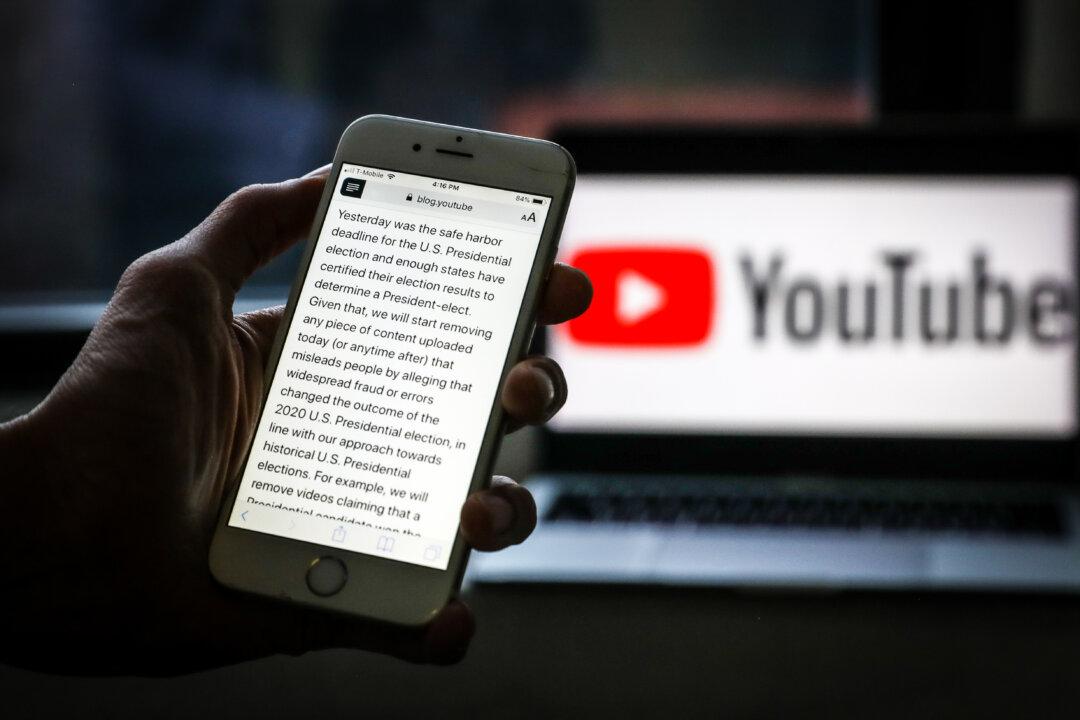YouTube announced on Dec. 9 that the company will immediately start removing content pertaining to alleged “widespread fraud or errors” that took place in this year’s presidential election, a move that experts say is unprecedented in its scope and warned such censorship could trickle into every other major platform.
In a statement, the video-sharing platform said it will begin “enforcing this policy today, and will ramp up in the weeks to come.” The company said news coverage and commentary on these issues “can remain on our site if there’s sufficient education, documentary, scientific, or artistic context.”





